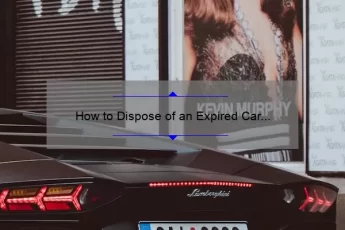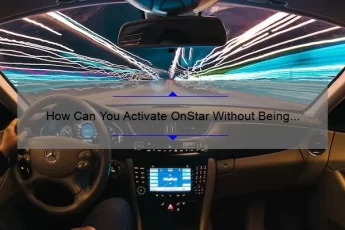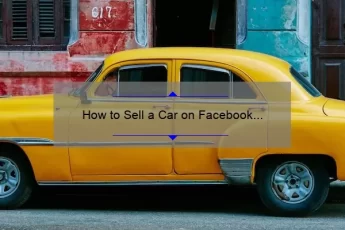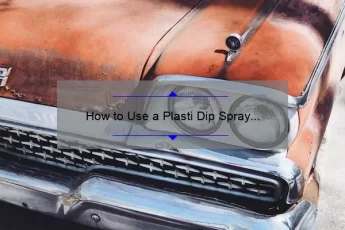You may be wondering how loud your car can be in California. The limit is 85 dbA. However, if you break this limit, you could be subject to a $1000 fine. You can easily reach that limit with a standard car. Before you decide to drive loud, read up on the law and how enforcement works.
85 dbA
The state of California is considering a bill that would crack down on loud cars and motorcycles. It proposes to use sound-activated cameras to identify individual cars and distinguish them from motorcycles. This measure could lead to a more equitable enforcement of noise laws across the country.
California has a very strict noise limit for vehicles, but some cars may not meet the legal limit. For example, some vehicles are designed to be louder than the limit of 85 decibels. Even cars that come straight off the assembly line can easily exceed the limit.
Even if cars are allowed to be louder, excessive noise can be harmful for your ears. Regular exposure to noise levels over 90 decibels can permanently damage hearing. Therefore, it’s best to limit the noise you create with your vehicle. The CDC recommends a 95-dB limit for cars.
California has a loud noise law that requires all cars to have a muffler installed. This regulation also applies to non-original exhaust equipment. California’s exhaust noise laws are laid out in California Vehicle Code SS 27150 – 27159 – Exhaust Systems.
$1000 fine
A loud car can get you in trouble. There are laws in place that make it illegal to drive too loudly. In California, the maximum legal noise level for vehicles is 95 decibels. This is extremely loud, and is higher than the sound level produced by a subway train running at 200 feet away. If you are caught driving too loudly, you can get a $1000 fine.
It’s not hard to see why people are getting upset about the new law in California. The state has banned excessively loud exhaust systems for passenger cars, motorcycles, light trucks, and trucks. This new law, which has been in place since 2017, is aimed at protecting the environment by prohibiting cars from being too noisy. It also makes it mandatory for police officers to issue citations immediately after the violation. And the fines can add up quickly – the minimum fine is $25, and the maximum is $1,000.
Fortunately, there are ways to avoid getting a citation. You can purchase a decibel meter, which costs about $20, and present it to the police when you get pulled over. This will help you avoid getting a $1000 fine because of a false violation of California’s noise laws.
In addition to being illegal, loud exhaust may also be harmful. It can affect your reaction time and cause hearing loss. While it will not result in points on your license, you can still get a citation if you make repeated violations. But the fine will be $1000 if you’re caught again.
If you have modified your car’s exhaust, you might be in violation of the new noise law. If you have, you will have to put it back into inventory. And it won’t hurt to sign the petition if you want to avoid losing a $1000 due to a stupid exhaust stop. The petition can be found on my profile page.
Decibel meter
A decibel meter is an instrument used to measure the amount of noise your car produces. Generally, a cop will hold a decibel meter 20 inches from your car’s exhaust tailpipe and ask you to rev it between three and five thousand rpm. If you’re unsure about how loud your car is, use a cell phone recording to get a more accurate reading.
Decibel meters are relatively inexpensive and can be purchased from electronics retailers. You can also borrow one from a local mechanic. There are also smartphone apps that can measure exhaust noise. However, you’ll want to read the instructions thoroughly and become familiar with the model you’re using. You’ll also want to check with your local police department or Motor Vehicle Administration to find out the limit of noise your car can emit. The California Highway Patrol recommends that a vehicle be no louder than 95 decibels when 20 inches away from its exhaust pipe.
California’s new law will introduce a new enforcement method that uses a smart camera and decibel meter to detect cars exceeding the limit. Once the camera identifies the car’s source of noise, it will snap a picture of the vehicle and email a ticket to the owner. This method has already been used in New York state and France.
The new law is expected to begin January 1, 2013. The bill specifies six cities where the automated enforcement will take place. It’s unclear what effect this measure will have on Californian cars and motorcycles. But it will certainly make it more difficult for car owners to operate their vehicles at their maximum capacity.
California’s noise laws also require that all cars have mufflers. Unless the muffler you’re using is a high-quality one, it’s unlikely to meet the standards. However, if you are still concerned, you can purchase a decibel meter for around $20 and prevent yourself from getting a ticket for violating exhaust laws.
Enforcement
There is an upcoming law in California that could increase fines for driving too loudly. Senate Bill 1079 would create a pilot program in six California cities that would use sound-activated enforcement devices to identify cars and drivers exceeding the legal limits. Currently, state law requires that drivers maintain a properly functioning muffler and exhaust system. The proposed law could serve as a model for traffic enforcement in other states.
The new California law makes it harder to modify or install an illegal exhaust system. While this change might inconvenience some drivers, it will not affect the majority of car enthusiasts. To learn more about the new law, visit the California Bureau of Automotive Repair’s webpage on vehicle exhaust noise level certification. If you aren’t sure whether or not a test was performed, a cell phone recording of the stop can clarify the issue.
Under the new law, the state will employ sound-activated enforcement cameras and decibel meter devices to crack down on loud cars. These cameras will focus on the source of the noise and send an automated ticket to the vehicle owner. In other states, such as France, this technology is being tested and has been approved for use in some cities.
The new law does not specify where these cameras will be located. It also makes it impossible to pinpoint the exact number of vehicles in violation. Moreover, the bill does not specify the cities that will receive sound-activated cameras. However, it is likely to increase fines for violators.
The California State Legislature recently passed SB-112, which will enforce loud exhaust laws for cars. It is an important step in reducing pollution and ensuring public safety. The new law is scheduled to go into effect on January 1st, 2023. In addition to this new law, the legislation also includes new tools to assist police in the enforcement of the law.








